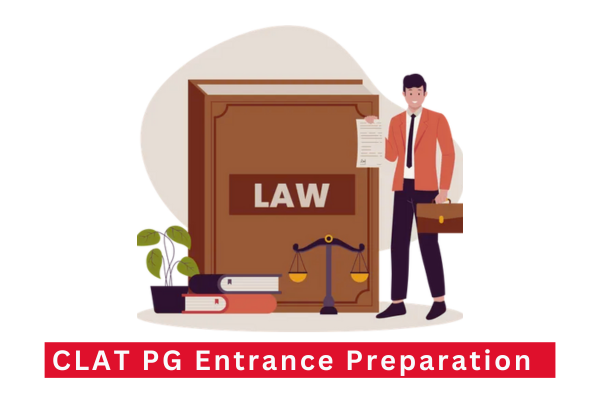
Emergency Arbitration In India And Contentious Issues
The world of dispute resolution has seen a growing reliance on arbitration as an alternative to traditional court proceedings. Within this landscape, one particularly noteworthy development is the emergence of emergency arbitration - a mechanism that allows parties to obtain urgent interim relief even before the formal arbitral tribunal is constituted. In India, this concept has generated significant debate and controversy, raising a host of contentious issues that continue to shape its evolving landscape.
Understanding Emergency Arbitration
At its core, emergency arbitration is a mechanism that enables parties to a dispute to seek immediate and temporary relief from an arbitrator, known as an Emergency Arbitrator (EA), prior to the constitution of the full arbitral tribunal. This is particularly crucial in situations where time is of the essence and irreparable harm could occur if prompt action is not taken.
The key features of emergency arbitration in the Indian context are:
- Absence of Explicit Recognition: Unlike some other jurisdictions, the Indian Arbitration and Conciliation Act, 1996 (the "Act") does not explicitly recognize or provide for emergency arbitration. This legal ambiguity has led to significant debate and uncertainty surrounding the enforceability of orders issued by EAs.
- Reliance on Institutional Rules: In the absence of statutory provisions, Indian parties often incorporate arbitration rules of institutions, such as the Singapore International Arbitration Centre (SIAC), the Mumbai Centre for International Arbitration (MCIA), or the International Chamber of Commerce (ICC), which do include provisions for emergency arbitration.
- Recent Trends and Developments: The high-profile dispute between Amazon and Future Retail in India has brought the issue of emergency arbitration into sharp focus, influencing how Indian courts perceive and approach EA orders.
Contentious Issues in Emergency Arbitration
- Enforceability of EA Orders: One of the most contentious issues surrounding emergency arbitration in India is the question of whether EA orders are enforceable as "awards" under the Arbitration Act, or if they are merely interim orders that can be challenged in courts. The Indian judiciary has had conflicting opinions on this matter. In the case of Raffles Design International India Pvt. Ltd. v. Educomp Professional Education Ltd., the Delhi High Court held that an EA order is an "order" and not an "award," and therefore not directly enforceable under the Act. In contrast, the Gujarat High Court, in the case of Amazon.com NV Investment Holdings LLC v. Future Retail Ltd., took the view that an EA order is an "interim award" and is therefore enforceable under the Act. This ambiguity has created significant uncertainty for parties seeking urgent relief through emergency arbitration, as the enforceability of EA orders remains a contentious issue.
- Jurisdiction of the EA: Another area of contention is the scope of an EA's jurisdiction and the types of relief they can grant. Questions often arise as to whether EAs have the same powers as a formal arbitral tribunal, or if their jurisdiction is more limited. Additionally, there's a debate around whether an EA can rule on its own jurisdiction, or if that determination should be left to the eventual arbitral tribunal. These jurisdictional issues can have significant implications for the effectiveness and utility of emergency arbitration, as parties may be unsure of the EA's ability to grant the necessary relief.
- Overlap with Court Intervention: The Indian Arbitration Act, under Section 9, allows parties to approach courts for interim measures before, during, or even after arbitral proceedings. This creates a potential overlap between the jurisdiction of the courts and the powers of an EA. Parties may be tempted to seek interim relief from the courts, even in cases where an arbitration agreement exists, rather than from an EA. This can undermine the purpose of emergency arbitration and lead to forum shopping. The interplay between court intervention and emergency arbitration remains a contentious issue, with courts often grappling with the extent to which they can interfere with EA orders.
The Amazon v. Future Retail Case: A Watershed Moment
The high-profile dispute between Amazon and Future Retail has been a watershed moment in the evolution of emergency arbitration in India. This case has sparked extensive legal discussion and has significantly influenced the way Indian courts perceive and approach EA orders.
In this case, Amazon invoked the emergency arbitration mechanism under the SIAC Rules, and the EA granted an interim order restraining Future Retail from proceeding with its transaction with Reliance Retail. Future Retail then challenged the enforceability of the EA order in the Indian courts.
The Indian Supreme Court, in its landmark judgment, upheld the validity of the EA order granted under the SIAC Rules. The court held that the EA order was an "interim award" and was therefore enforceable under the Arbitration Act.
However, the Supreme Court also observed that Indian courts are not entirely barred from interfering with EA orders, and that they can exercise their powers under Section 9 of the Act to grant interim relief in appropriate cases.
This decision has had a significant impact on the landscape of emergency arbitration in India. On the one hand, it has provided some clarity on the enforceability of EA orders, but on the other hand, it has also highlighted the potential for overlap and conflict between the powers of EAs and the courts.
The Evolving Landscape
The ongoing debate and judicial scrutiny surrounding emergency arbitration in India could potentially lead to further developments and clarity in this area of law. Some of the potential outcomes include:
- Amendments to the Arbitration Act: The Indian government may consider amending the Arbitration Act to formally recognize and regulate the emergency arbitration mechanism. This could provide much-needed clarity on the enforceability of EA orders and the scope of an EA's jurisdiction.
- Clearer Judicial Precedent: As more cases involving emergency arbitration reach the courts, the judiciary is likely to develop a more consistent and well-defined body of jurisprudence on the various contentious issues surrounding this mechanism. This could help provide greater certainty for parties seeking urgent relief.
- Increased Institutional Guidance: Arbitral institutions in India, such as the MCIA and SIAC, may also play a role in providing clearer guidelines and rules for the conduct of emergency arbitration proceedings. This could help address concerns related to the jurisdiction and powers of EAs.
Practical Considerations for Parties
For parties considering the use of emergency arbitration in India, there are several practical considerations to keep in mind:
- Review Your Arbitration Agreements: If you are a party to a contract with an arbitration clause, it is essential to carefully review the agreement to determine if it includes any provisions for emergency arbitration. This will help you understand the available options and the potential enforceability of any EA orders.
- Choose the Right Arbitral Institution: If emergency arbitration is an important factor for you, it is advisable to select an arbitral institution with a robust and clear framework for emergency arbitration proceedings. This can provide greater certainty and predictability in the event that urgent relief is needed.
- Weigh Your Options: Even when opting for emergency arbitration, parties should carefully consider whether parallel applications to a court for interim relief might strengthen their position and increase the chances of obtaining the necessary relief.
Conclusion
The landscape of emergency arbitration in India is still evolving, with significant legal and practical challenges that continue to shape its development. The ongoing debate and judicial scrutiny surrounding this mechanism have the potential to lead to greater clarity and certainty, but for now, parties must navigate this complex and contentious terrain with caution and strategic foresight.
Consulting with experienced legal professionals is highly recommended to ensure that any decisions regarding emergency arbitration in India are made with a thorough understanding of the current state of the law and the potential risks and benefits involved.


.png)




.png)
